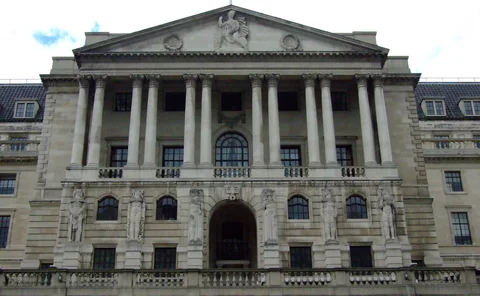Research
BoE working paper examines ‘exorbitant privilege’ benefits
Economist analyses whether the UK enjoyed the same benefits as the US when it was the pre-eminent issuer of a global reserve currency; findings show fundamental differences between the two in terms of investment patterns
Fed paper: corporate bond buying can misallocate capital
Capital misallocation effects can mean corporate bond purchase schemes underperform QE based on sovereign bonds, say economists
IMF deems negative rates to have had ‘no major side effects’
IMF paper explores the impact of negative interest rates on bank behaviour, concluding the transmission to money markets and bond yields has worked well
San Francisco Fed economist explores methods to forecast interest rates
Michael Bauer aims to forecast interest rates based on the current level and long-run trend, and a narrative linking both
Banks not ‘boring’ before Glass-Steagall repeal, New York Fed economist says
There is little evidence of an explosion in non-traditional activity after Glass-Steagall was dropped, despite the conventional narrative, economist says
Tax cuts should focus on income from capital, French paper argues
Cutting taxation on labour is less effective in boosting growth, researchers say
IMF explores ways to increase profitability of Italy’s banking sector
Italian banks have operated in a low-growth environment since early 1990s; eurozone interest rates at record lows since global financial crisis
Eurozone’s demographics will continue to push interest rates down – paper
Structural policies will take time to reverse impact of adverse demographics, researchers say
Evolution of monetary policy in advanced economies spells trouble for emerging markets – paper
Research explores the impact future monetary policy will have on emerging markets, concluding many will be forced to implement defensive measures
Paper proposes method to estimate network of exposures
Researcher draws on aggregate exposures and market data to build a more complete picture of the network of bank exposures
IMF research flags technology’s role in falling labour share of income
Automating routine tasks is cheaper for companies, which reduces jobs for middle-skilled workers and contributes to higher inequality in advanced economies, paper finds
BoE economists issue ‘call to arms’ for macro-prudential research
Researchers outline a simple framework to help understand the macro-prudential “balancing act”, but say there is a long way to go in developing a definitive model
BoE paper warns escape from secular stagnation may ‘beggar thy self’
Authors outline an unappealing situation where the only escape comes from currency depreciation, but may nevertheless end up harming domestic welfare
Regulations have net benefit despite cost to dealers – BoE paper
Working paper finds leverage requirements have raised costs for dealers in normal times, with the impact larger than earlier studies imply
Eurozone tax systems subsidise housing debt, ECB paper argues
Under-taxation of returns to home equity drives distortions, researchers say
Fed paper: portfolio holdings have ‘statistically significant’ effect on rates
Research studies composition of Fed’s Treasury portfolio and impact on yields from 1985-2016
BIS paper seeks hints that Swiss franc floor was about to break
Measures derived from option prices indicate credibility fell before floor was removed; error correction model shows some improvement over random walk
Deregulation aided women entering US labour force – paper
ECB paper finds efforts to open up the credit market from the 1970s to 90s helped reduce the gender gap in the labour force
CEPR paper sketches ‘radical, realistic’ Greek reform plan
Stanford and Yale economists outline “unorthodox” policies that could put Greek debt on a sustainable footing – and might be acceptable to all negotiating parties
US policy having a larger impact on credit – BIS paper
Monetary policy’s effects on credit and housing markets have grown while the effects on inflation have weakened, paper finds
Big data sheds light on income risk – Minneapolis Fed research
Better sources of data have allowed economists to gain new insights into how income risk changes over the cycle, says researcher
Pass-through varies across countries and time – BoE paper
Kristin Forbes and co-authors study the shocks and structural factors that help explain variations in the exchange rate’s impact on inflation
BoE bloggers suggest central banks could use equity-financed QE
Economists raise ideas for future balance sheet innovations, including digital currencies, helicopter money drops and equity-based quantitative easing
Household balance sheet adjustment a long process – Danish study
Research into patterns of consumption and saving before and after the 2008 crisis shows deleveraging can take a long time; consumption impact of rate hike is “modest”





















